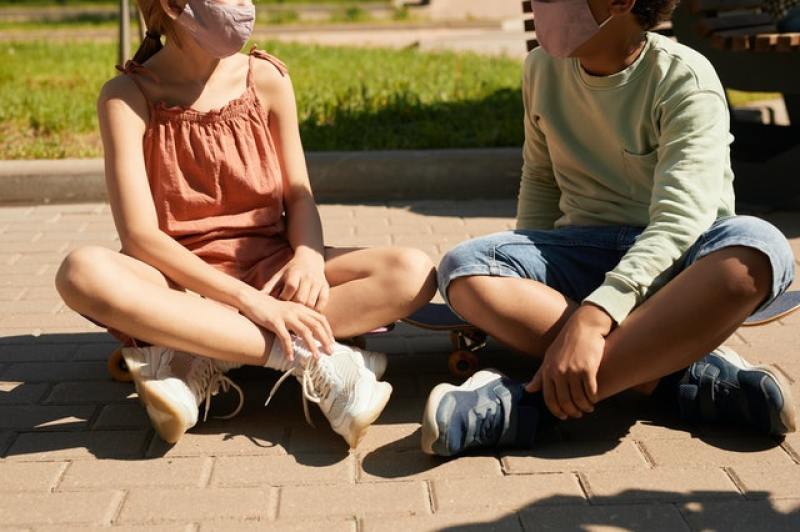
A bill proposed by Republican Representative Joe Harding that would prohibit discussions on sexual orientation or gender identity in classrooms of kindergarteners to seventh graders is being considered by Florida lawmakers. The proposed legislation is based on the 2021's Parents' Bill of Rights, which provides protections for the "fundamental rights of parents to direct the upbringing, education and care of their minor children."
According to WFLA, the newly proposed legislation called House Bill 1557 and its companion Senate Bill 1834, both require schools to "adopt procedures for notifying" parents of students if there is a change in the kids' welfare. The Senate version of the bill was sponsored by Republican Senator Dennix Baxley.
Rep. Harding fielded questions of curriculum, specifically about discussions of the LGBT community in the classroom. He argued, however, that the new Florida bill sought to give parents more protections on deciding how to raise their children.
"A school district may not encourage classroom discussion about sexual orientation or gender identity in primary grade levels or in a manner that is not age-appropriate or developmentally appropriate for students," House Bill 1557 read. Rep. Harding defended the bill from other members of the committee, saying that teachers, school administrators, councilors are the people who could decide what qualified as age or developmentally appropriate for students.
Rep. Harding added that children between six and 11 eyars old were what he believed to be qualified as the primary grade levels the bill would prohibit from discussions of sexual orientation or gender identity in case the measure passes. Following further questions during the hearing, the representative said that he would consider primary grades as K-5.
According to CBN News, Rep. Harding explained that the proposed legislation would also prevent school districts from establishing curricula or policies that encourage teachers to discuss LGBT topics in the classroom. It would not, however, prevent the teaching of LGBT history in schools, but will bar teachers from starting those discussions via questionnaires or events.
When Democratic Rep. Ana Eskamani asked if children of LGBT families would be prohibited from discussing their families under the proposed bill, Rep. Harding said that those discussions would not be prohibited, explaining, "If we are clarifying every conversation a teacher can have with a student, that would be a considerable undertaking."
Rep. Harding explained further, "What we don't want is the school district to try take on the role of being the parent, because they're not, that's the role of the parent. I would argue that on the opposite, this encourages the parent to be the one having this conversation, not the government."=
The new Florida bill being considered by lawmakers was met with major backlash from LGBT advocates who claimed that banning discussions on sexual orientation and gender identity in public kindergarten to middle schools is sending many young students back into the closet, the Trevor Project's Sam Ames said, as per Business Insider.
Ames, who serves as the group's director of advocacy and government affairs, said, "LGBTQ students deserve their history and experiences to be reflected in their education, just like their peers."
Parental rights
Some who were in favor of the new legislation, such as licensed mental health counselor January Littlejohn, herself a parent, revealed that the school her 13-year-old daughter went to had created a "transgender, gender-nonconforming support plan" without her knowledge and consent, WFLA noted. School officials she had never personally met held the meeting with her daughter behind closed doors.
Littlejohn said she was prevented from accessing any information about this by the school's own vice principal and guidance counselor. She was only able to access some information after weeks of repeated requests for information about the said meeting.
"When parents are excluded from decisions affecting their child's health and wellbeing at school, it sends a message to children that their parents' input and authority are no longer important," Littlejohn said. "This created a huge wedge between our daughter and us because it sent the message that she needed to be protected from us, not by us."




















